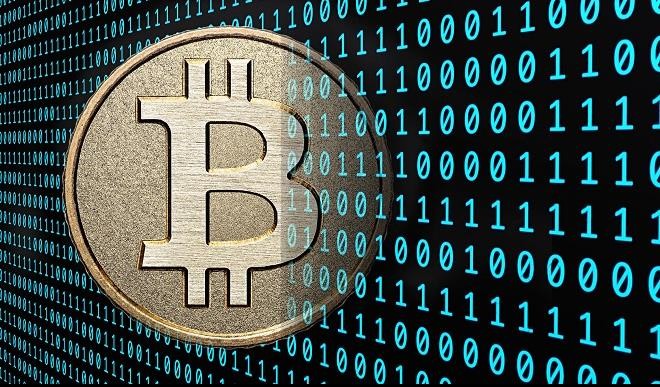
Between February 2011 and April 2011, one bitcoin, the digital money, was worth $1. When the first article on Bitcoin was written in this Daily Trust column on 10 December 2012, one bitcoin was worth $13. As at the last article on Bitcoin in this column, on 5 June 2017, a single bitcoin would fetch you $2,443. However, on Monday of last week, 27 November 2017, if you had one bitcoin, you could get $10,000 for it. A few days ago, the figure was $10, 800. In fact, from the beginning of this year, the value of one bitcoin to the dollar has increased 11-fold. What is going on?
The astronomical rise in the price of Bitcoin is explained in terms of the flood of new mainstream buyers and hedge fund investors from around the world who, according to Nathaniel Popper in the 27 November 2017 issue of the New York Times, “think they have spotted a new kind of investment that could ultimately compete with gold as a place to store money outside the control of companies and governments.” Popper also notes that in recent months, trading among ordinary investors has taken off in South Korea and Japan. He noted that Seoul – the capital of South Korea – now has multiple storefronts where less technically adept people could buy and sell Bitcoin, stating that “it was on Korean exchanges where the price of Bitcoin first hit $10,000 on Monday.”
Obviously, developments such as the foregoing heighten people’s concerns about Bitcoin’s volatility. However, the euphoria, if not mystery, about this Internet-only currency, cannot be more. There are stories of people who purchased the currency at infancy for under a dollar per bitcoin. (The currency is believed to have been created on 3 January 2009, though the identity of the creator is still not known.) Because people did not attach much importance to the currency at the time, they did not pay attention to the location of their Bitcoin accounts and so cannot find them. Now that the currency is so worthy, these people are scrambling to find their hidden fortunes. Why not? Folks, who purchased, say one hundred dollars of Bitcoin at the beginning, are worth more than one hundred thousand dollars today!
What to do now if you have bitcoins? I would easily liquidate today, meaning converting my bitcoins to one of the stable standard currencies, like the dollars or Euro. Of course, I would leave some small percentage in bitcoins, perhaps just to “play.”
Why will I sell? Because it doesn’t appear that the current value of the Bitcoin or the currency’s growth-rate is sustainable, not to mention the fact that the currency’s appreciation is not tied to any real-world (financial) fundamentals. Skeptics have called this a fraud, a bubble, and a Ponzi scheme. Moreover, it is unregulated and is not backed by any government or currencies. Bitcoin trading is completely anonymous, except when you want to exchange it for the standard currencies – Yen, Euro, Dollar, Naira, or Pound Sterling. Hence, the currency has attracted the interest of “bad guys.” The WannaCry Ransomware hackers of 12 May 2017 demanded the ransom payments in Bitcoin because of the anonymity.
For now, the more the critics cry foul, the more Bitcoin investors traded – buying Bitcoin at higher prices. Popper stated that “On Sunday, more than $5 billion was traded on Bitcoin exchanges, according to the data site Coinmarketcap.com – a greater volume than what many American stock exchanges see on a normal day.” He further remarked: “Believers in the Bitcoin technology, which is backed by a new kind of computer network, have argued that what we are seeing is the formation of a new asset class that could join stocks, bonds and physical commodities in the investment portfolios of ordinary people.”
Without the intention of regulating the trading in Bitcoin, blossoming Bitcoin activities have since motivated the U.S. government to warn Bitcoin businesses to comply with some laws. There are the U.S. Congress “Know Your Customer” (KYC) laws. These laws require: a) stringent checking of the identities of the people dealing in Bitcoin, b) close monitoring of accounts, c) reporting of suspicious activities, d) mandatory registration as money transmitters (such as Western Union or MoneyGram), and e) registering with the U.S. Treasury Department’s Financial Crimes Enforcement Network, or FinCen.
I believe Bitcoin exchanges can be found all over the world; you just need to go to the web and, in a few steps, you are trading. As always, I cannot overemphasize the need to exercise caution when you trade in Bitcoin. You will want to be sure that you are using a legitimate exchange; meaning you have to do your homework. It is comforting to note that most of the exchanges, especially in some developing countries, have a relatively low ceiling for the amount of Bitcoin you can buy.

 Join Daily Trust WhatsApp Community For Quick Access To News and Happenings Around You.
Join Daily Trust WhatsApp Community For Quick Access To News and Happenings Around You.


